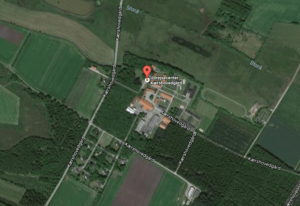News
New austerity measures for ‘tolerated’ asylum-seekers in Denmark ‘violate’ human rights
This article is more than 9 years old.
Danish Institute of Human Rights criticises that the ‘tolerated’ persons will have to live in isolation and follow a strict regimen

The departure centre Kærshovedgård in central Jutland will soon accommodate not only rejected asylum-seekers, but also immigrant criminals and tolerated individuals (photo: Google Maps)
Recently-announced austerity measures for immigrant criminals and ‘tolerated’ asylum-seekers in Denmark could be a violation of human rights, states the Danish Institute for Human Rights (DIHR).
The austerity measures include the introduction of new reporting obligations and tougher punishments for their violation.
Additionally, it has been agreed that all immigrant criminals and ‘tolerated’ asylum-seekers will be transferred to and accommodated at Kærshovegård, an isolated departure centre near Ikast in central Jutland.
READ MORE: Danish Parliament adopts highly-criticised asylum austerity measures
Louise Holck, the deputy-head at DIHR, called the measures “very strict”.
“If they have to stay at a place that is very isolated, so will their opportunities to socialise with others [family and friends] be accordingly limited,” Holck told DR.
According to DR, the government’s position on the announced austerity measures is such that “various international conventions must be explored and, if necessary, challenged”.
‘Tolerated stay’ is a protection status for people who have not been granted asylum (and the rights this status entails), but cannot be sent back to their home country because their life would be in danger there.






































